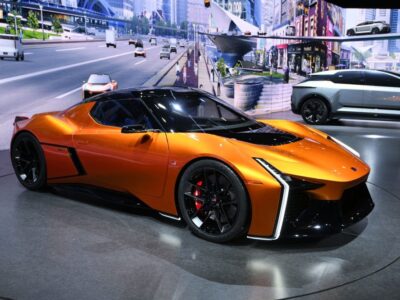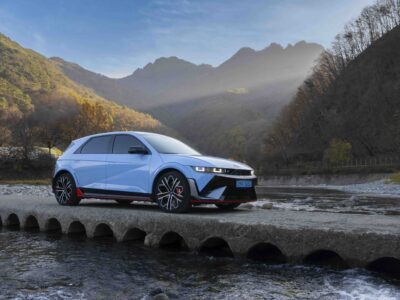With electric vehicles (EVs) taking the high-speed auto racing world by storm, the Formula E circuit has seen several innovative electric motor technologies enter the fray. Jaguar Land Rover (JLR) believes this technology is beneficial outside of the racetrack. In a deal with American semiconductor producer Wolfspeed, the upcoming electric Jaguar and Land Rover lines will use Formula E technology in their engines to increase efficiency and performance.
Wolfspeed has been working with the Jaguar TCS Racing team in Formula E since 2017, producing decent results on the race track. Now, they are pivoting to civilian EVs. The two companies announced an agreement on Oct. 31, 2022, to see Wolfspeed’s Silicon Carbide technology installed in future JLR electric cars.
This move will increase the efficiency and range of the powertrain. Power from the battery will be used in the inverter of each future EV JLR produces, being sent to the motor for this increased performance.
The first vehicle to include this Silicon Carbide tech will be the 2024 electric Range Rover, with a new line of Jaguar EVs to follow in 2025. Though based in North Carolina, Wolfspeed plans to produce all these powertrains at a factory in upstate New York, the world’s largest 200-millimeter Silicon Carbide fabrication facility.
JLR has been undergoing a massive transformation in its EV and carbon-neutrality mission. Called the Reimagine strategy, the British automaker plans to switch to electric-only sales, carbon-neutral supply chains, and eco-friendly operations by 2039.
However, getting there has been a difficult journey for JLR. After canceling the XJ sedan project, the automaker had to rethink its electrification strategy. Instead of swapping internal-combustion engines with electric motors in existing car models, there is a concerted effort to create a line of distinct EVs.
Currently, the only JLR EV available for purchase is the I-PACE. The company didn’t believe big, electric SUVs would have the same financial returns as some of the sedans produced. This deal with Wolfspeed could change that notion. There will also potentially be hydrogen fuel-cell technology substituted for large battery packs needed for Range Rovers, Defenders, and other SUVs.
A strategic partnership with Wolfspeed is critical to getting JLR back on pace to reach its carbon neutrality goals.
“We are not strangers, having collaborated together with the Jaguar TCS Racing team for the last five seasons,” said Thierry Bolloré, former CEO of JLR. “By developing that into a strategic partnership as part of our Reimagine strategy, we can integrate Wolfspeed’s advanced Silicon Carbide technology into our next-generation electric vehicles, delivering extended range and performance capabilities for our clients.”
Although the public has yet to see what these new EVs will look like, consumers can consider the results of Jaguar TCS on the Formula E track. As of the 2021–22 season, the team has finished first place in eight races since beginning operations in 2017, finishing fourth in points this past year. They managed to finish in a podium position 21 times and set the fastest lap time eight times.
The racing engine tech was installed in the I-PACE in 2018, signifying how well these motors perform. If Wolfspeed’s semiconductors are performing well on the track, they should do well on the streets.
Wolfspeed is excited to expand its partnership with JLR. “Wolfspeed is proud to partner with Jaguar Land Rover, supporting its bold commitment to electrify its iconic brands by using Silicon Carbide’s superior performance, efficiency, and range,” stated Gregg Lowe, Wolfspeed’s president and CEO. “The energy efficiency of Silicon Carbide will play an essential role as Jaguar Land Rover pursues its own zero carbon goals and as the world transitions to an all-electric transportation future.”





